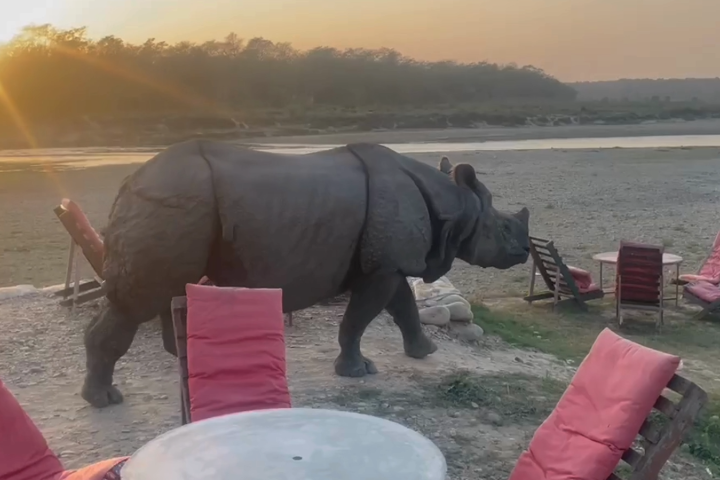In the News

August 08, 2025
Wildlife researchers have found that the transmission of deer parasites is hindering the growth of New York's moose population.

August 06, 2025
A recent Cornell study suggests that young and adolescent bats may be the most likely to transmit coronaviruses to other species.

August 05, 2025
During the winter of 2025, I had the pleasure of completing a six-week clinical externship at the San Diego Zoo Safari Park in Escondido, California. The Safari Park is an 1,800-acre facility, home to more than 3,000 animals representing over 300 species....

Video
July 24, 2025
A greater one-horned rhino strolls down the street in Nepal, just outside Chitwan National Park.

July 18, 2025
The Janet L. Swanson Wildlife Hospital, which has more than tripled its caseload over the past decade, is renovating its facilities to treat an increasing number of injured or ill native wild animals.

Video
July 15, 2025
The Cornell College of Veterinary Medicine hosted its second annual Symposium on Artificial Intelligence in Veterinary Medicine with a keynote by Dr. Alex Dehgan of Conservation X Labs, highlighting how AI can drive accessible, global conservation solutions.
July 11, 2025
Collaboration with local professionals is an integral part of every international project undertaken by the Cornell K. Lisa Yang Center for Wildlife Health. In Kyrgyzstan, we have been working closely with our local collaborators...

Video
July 09, 2025
While in Chitwan, Nepal, Drs. Carmen Smith and Martin Gilbert captured footage of a free-roaming greater one-horned rhino passing through the bar.

July 08, 2025
Center director, Dr. Steve Osofsky, cautions against the serious consequences of reducing federal funding for the development and production of mRNA vaccines targeting pandemic influenza viruses, including H5N1 avian flu.

July 03, 2025
A new paper by Dr. Steve Osofsky and team was recently selected for the Editor’s Choice honor by the journal CABI One Health. The selected publication discusses the AHEAD program’s work over the past two decades.
